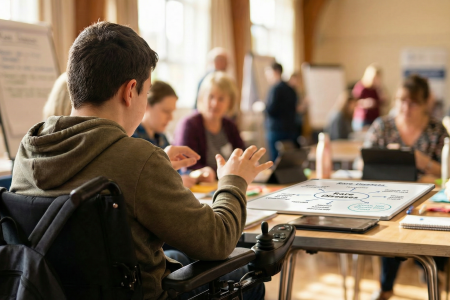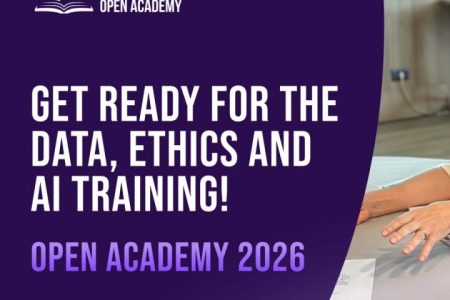ERDERA’s Training & Education acts as a European learning hub, raising rare-disease know-how from the first laboratory experiment to the negotiation of a health-technology-assessment dossier.
Training & Education
Building on the lessons of the EJP RD programme, the team has mapped existing courses, interviewed patient organisations, clinical research networks and data-service hubs, and identified critical gaps in diagnostic genomics, advanced therapeutics and evidence synthesis.
Each course is designed for a blended journey: self-paced online modules establish core concepts, live webinars encourage discussion with subject-matter experts and small, face-to-face workshops translate theory into hands-on skills.
A train-the-trainer model means every workshop produces future tutors, multiplying impact across Europe and ensuring material is freely shared as Open Educational Resources.
Programme highlights
The ERDERA Learning Portal ranges from short micro-credential courses to a continent-wide diploma:
Patient and community leadership
Clinical research skills
Omics and data science
Innovation & entrepreneurship
Policy, ethics and regulation
Build the skills to shape the future of rare disease research!
Current and next key initiatives
- European University Diploma in Rare Disease Research: twelve core modules, co-delivered by universities in Rome, Dublin and Tübingen, piloting in and offering ECTS credits that can be stacked into Master’s pathways.
- FAIR Data “Bring-Your-Own-Data” hackathons: three-day clinics where clinicians and data stewards clean and harmonise real registry data under expert guidance, then take the workflow home to teach colleagues.
- Cell & Gene Therapy Development School (led by EATRIS): a preparatory e-learning series (up to 500 participants annually) followed by thirty-seat laboratory courses covering vector design, manufacturing and regulatory strategy.
- Best Practice for iPSC Research (led by Fraunhofer UK): beginner webinars and national, face-to-face sessions in local languages, culminating in a community-authored handbook on ethical and legal standards.
- Evidence Synthesis for Clinical Studies (led by SFU) : a modular programme combining Moodle self-learning, monthly online supervision and residential workshops capped at twenty participants to foster peer mentoring.
- Management of Multinational Trials (led by ECRIN): a short online self-learning course, promoting active engagement through built in interactions with course content, access is provided on a first come first served basis.
Courses are delivered at three difficulty levels, with scholarships set aside for under-represented regions and for patient advocates.
Child-friendly workshops, coordinated by TEDDY, empower adolescents to contribute to study design and dissemination.
Access
Users will be able to filter every training asset—videos, slide sets, reading lists and practice datasets—by topic, target audience, language, learning level and format, making it straightforward to locate precisely the material needed for a classroom lesson, a regulatory submission or a patient-community briefing.
ERDERA will update the catalogue regularly, align new courses with emerging research priorities and invite feedback to keep the content relevant and accessible to all.
You can also access some relevant online educational materials here.




